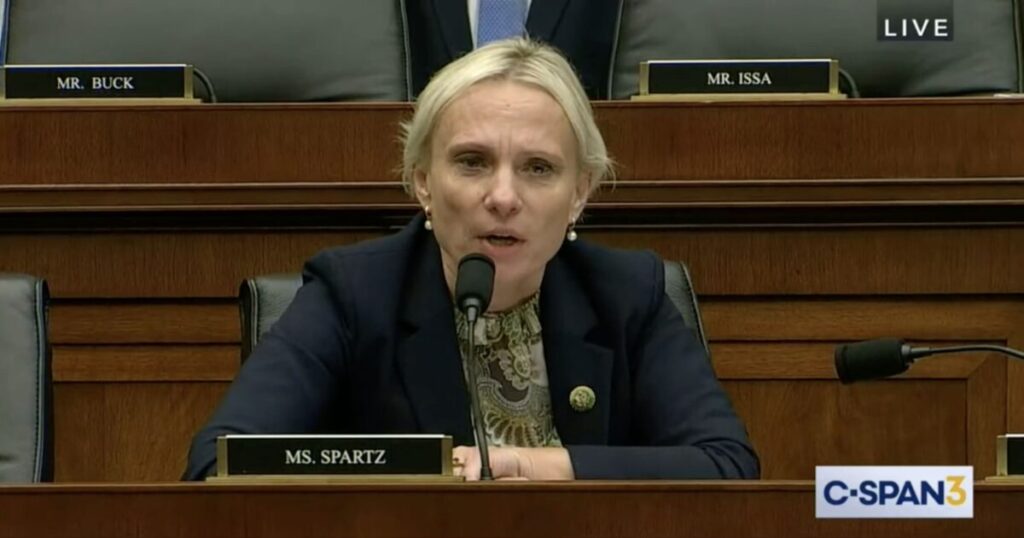Representative Victoria Spartz, a conservative Republican from Indiana with Ukrainian roots, has recently made headlines with her unique stance towards her role in Congress. Expressing a desire to prioritize her efforts on impactful initiatives rather than committee work, she has openly stated that her focus will be directed towards supporting the cryptocurrency DOGE along with her colleague, Rep. Thomas Massie, in a bid to “save our republic.” This unconventional approach reflects her conviction about the current state of the Republican Party and its leadership. By stepping away from standard congressional duties, Spartz underscores a perspective that is often missing in political discourse, inviting other Republicans to reconsider their priorities as the 2024 elections approach.
In a significant tweet, Spartz declared her preference to remain a registered Republican while opting out of participation in committees and caucus activities until she sees effective governance from Republican leaders in Congress. Her words, “I do not need to be involved in circuses,” indicate her frustration with the inefficiencies and theatrics that can characterize congressional processes. Furthermore, this sentiment resonates with a growing dissatisfaction among voters regarding the perceived disconnect between political promises and the actual work delivered by elected officials. For Spartz, this moment is not just about individual choice but reflects a broader call for accountability and commitment within the party to fulfill the mandates set forth by the electorate.
The impetus behind Spartz’s decision can be traced back to what she sees as a clear message from voters during the recent elections: a demand for genuine governance, not just partisan posturing. In her press release, she emphasized that the American people expect more than just talking points and symbolic actions from their representatives. Highlighting the urgency of the fiscal issues faced by the country, she argued for the need for courage and structural reforms within Congress to address these challenges effectively. Her strong stance paints her as a dedicated legislator who prioritizes real work in service of her constituents over engaging in the superficial aspects of congressional life.
Moreover, Spartz’s ability to articulate her discontent with the political status quo can serve as a lesson for her Republican colleagues. By likening traditional congressional activities to “circuses,” she challenges the culture that can prioritize spectacle over substance. Her commitment to prioritizing practical solutions over public relations efforts underscores the gap between what voters desire and what elected representatives often deliver. Through her actions and words, Spartz advocates for a return to foundational principles of governance that focus on the substantive issues impacting citizens rather than the theatrics characteristic of political maneuvering in Washington.
Spartz’s critique also emphasizes the stakes involved for the Republican Party, particularly in the context of the Trump administration’s legacy and the potential future of American governance. Her mention of “draining the swamp” reflects a widespread sentiment among many party members that structural changes are necessary to prevent a repeat of the past failures, particularly as they relate to fiscal responsibility and accountability. The urgency she conveys regarding the need for effective governance ties into broader concerns about the direction of both the Republican Party and the nation as a whole, urging leaders to actively answer the demands of the people.
In conclusion, Victoria Spartz’s public declaration of her priorities signals a potential shift in how some Republican legislators may approach their roles in the lead-up to the 2024 elections. Her focus on meaningful engagement rather than superficial participation paints a strong picture of what she believes the party—and Congress—should strive to become. As debates about budgeting and spending continue, her willingness to forego traditional committee work represents both a personal choice and a broader challenge for all lawmakers: to remember the real reasons they were elected and to act decisively to meet the needs of their constituents. If more Republicans heed her call, there may be hope for a political environment that values accountability and genuine governance over mere spectacle.

